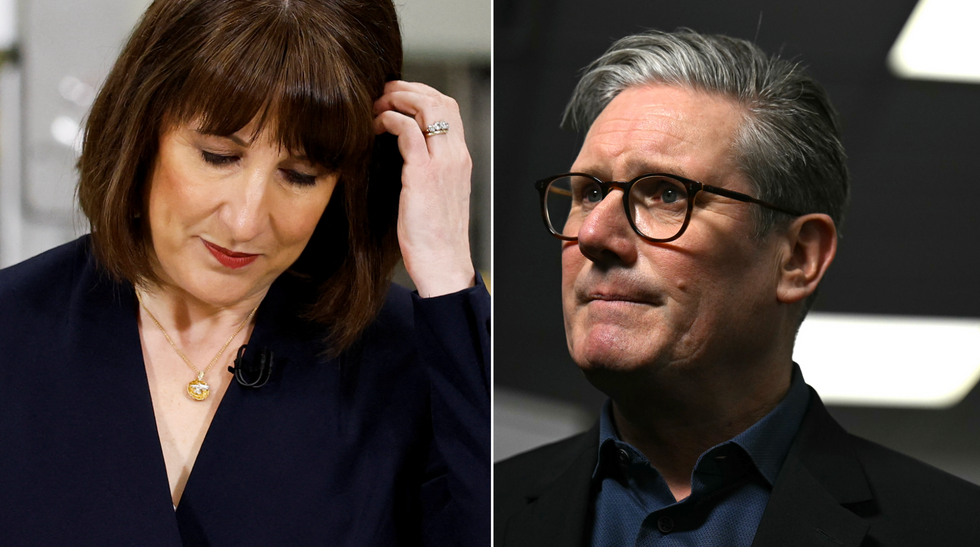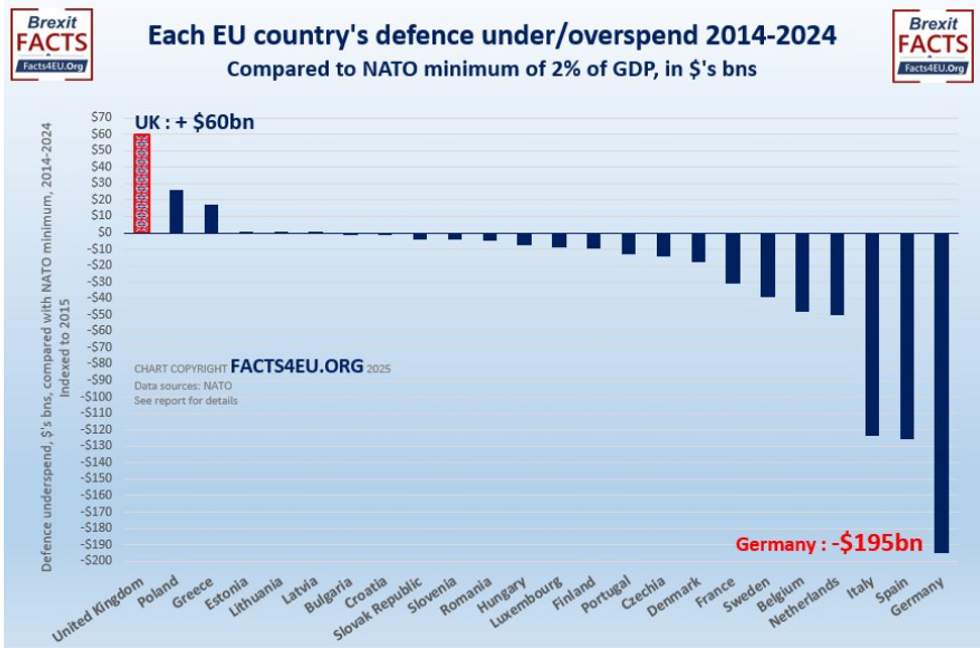Henry Bolton makes clear Russia is at war with Britain
GBNEWS
The Chancellor risks making 'radical cuts' to achieve the 2.5 per cent of GDP target for military spending
Don't Miss
Most Read
Trending on GB News
Rachel Reeves faces a tough choice between £12billion in tax rises or significant spending cuts to meet Sir Keir Starmer's defence spending pledge, economists have warned.
The Resolution Foundation says the party would need to find £6billion a year by the end of the decade to boost defence spending to 2.5 per cent of GDP.
Reeves must now navigate between breaking her promise of no new taxes or imposing significant cuts to unprotected Whitehall departments such as transport and housing.
The dilemma comes less than six months after Reeves announced a record tax raid.
 Sir Keir Starmer has insisted that Rachel Reeves will carry on as Chancellor but pressure could force him to reverse course via five mechanismsGetty Images
Sir Keir Starmer has insisted that Rachel Reeves will carry on as Chancellor but pressure could force him to reverse course via five mechanismsGetty ImagesBloomberg reports that Government departments are preparing for potential budget cuts of up to 11 per cent to meet Starmer's defence pledge.
While Labour has not specified a timeline for reaching the 2.5 per cent defence target, military chiefs are pushing for faster increases amid pressure from Donald Trump to raise spending to as much as five per cent of GDP.
The Treasury has left open the possibility of additional tax rises in March, despite Reeves suggesting savings would come from spending and welfare cuts.
The move comes against a backdrop of mounting pressure from unions over public sector pay rises, following recent inflation-busting increases. The Resolution Foundation calculates that increasing defence spending to 2.5 per cent of GDP would require around £6billion by 2029-30.
Two-thirds of this increase would go towards day-to-day military spending, with the remaining third - approximately £2billion - allocated to capital spending on items like warships.
The think tank warns that Government plans already suggest cuts of £8.4billion to unprotected departments outside health and defence by 2029-30.
Emily Fry of the Resolution Foundation said: "Funding this aspiration is far from straightforward, especially as the public finances are already under strain."
Ben Zaranko from the Institute for Fiscal Studies suggests additional tax rises are the "most likely path" for the Chancellor. He warns that while there is no official definition of austerity, further spending cuts would be deeply felt.
He said: "If your local school is having its budget cut, if public sector workers are not getting pay rises, if councils are going bankrupt, if prisons are letting people out early because they can't afford to expand places, that is going to feel quite a lot like austerity."
The IFS economist notes these pressures come as Reeves faces demands from unions over public sector pay.
LATEST DEVELOPMENTS:
Economists warn the Government may need to consider "radical" cuts to public services to balance the books.
These could include introducing charges for GP appointments or post-16 education, including A-levels.
The IFS suggests means-testing for currently universal benefits could be necessary.
Zaranko said: "The Government never used to provide subsidised childcare for working parents. You could cut back the scope of the state as well. The government could just stop doing stuff."
Court judgments related to Thames Water and welfare reforms are adding further pressure to public finances.
 EU defence spending Facts4EU
EU defence spending Facts4EUThe Treasury faces mounting challenges amid low growth and higher borrowing costs.
Reeves's October Budget outlined plans to increase day-to-day spending by an average of 1.3 per cent annually over the parliament.
Without an improved economic outlook, the Resolution Foundation warns that fresh tax rises or deeper cuts to unprotected departments will be necessary.







